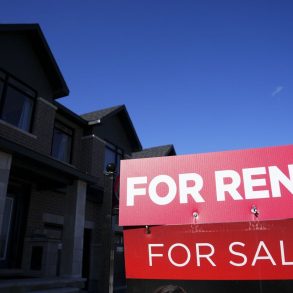The Canadian housing market softened in January, according to the latest figures from the Canadian Real Estate Association (CREA), with fewer sales and lower prices compared to January 2017.
The national average price fell by 5.5% year-over-year to $455,000 (excluding the Greater Toronto and Vancouver areas, the average property price is $360,000).
“Sales, market balance and home price trends are out of sync among major Canadian cities that have the greatest impact on national results,” said Gregory Klump, CREA’s Chief Economist. “It’s clear that housing market conditions remain weaker in the Prairie region and the Lower Mainland of British Columbia. Notwithstanding the intended consequences, tighter mortgage regulations that took effect in 2018, combined with previous tightening, will weigh on economic growth this year.”
January posted the largest year-over-year drop since May 2018 — likely because the Ontario Fair Housing Plan was announced in April 2017, which sent shockwaves through the second-most expensive housing market in the country, Toronto. Similarly, new tighter borrowing rules came into effect last January, but it’s unclear if that accounts for the large drop. What it does explain is the move into the least expensive property type — apartments, prices for which continue to outpace all other housing types.
The numbers, however, may not be what they seem: another of reported metrics, the MLS Home Price Index (HPI), says that home prices actually rose 0.8% year over year. The HPI is considered a more accurate reflection of the “typical” property, as it measures prices in 16 markets against a benchmark and excludes the very highest and lowest-priced homes.
Either way, it’s clear that prices have either slid or remain essentially flat.
Likewise, sales are depressed. Sales sank 4% year-over-year for the worst January in four years, and transactions dipped below the 10-year average for Ontario, Newfoundland, British Columbia, Alberta and Saskatchewan.
An glut of inventory exists in the Prairies and Newfoundland & Labrador, which is contributing to lower prices in those provinces. In contrast, supply is low in Ontario and Prince Edward Island, and coupled with high demand, prices refuse to budge.
Across the country there are 5.3 months of inventory, which how long it would take for all houses to disappear off the MLS at the current rate of sales, which is in-line with the long-term average.
Overall, the market remains balanced, with neither sellers nor buyers having an advantage, but this varies massively city by city, and often even neighbourhood by neighbourhood.
For more details on specific Canadian cities, check out the infographic below:








